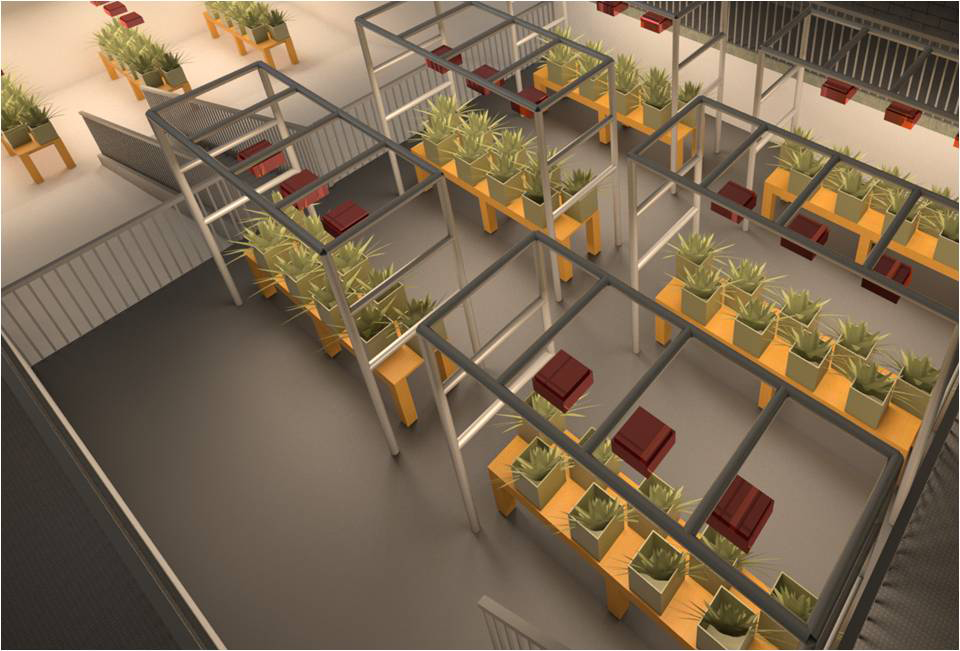
When the pool at the YWCA in Binghamton went out of commission, a group of students at Binghamton University saw an opportunity that isn’t traditionally associated with vacated swimming spots. They designed a plan that would allow the pool to grow vegetables.
The pool, which is 50 feet by 23 feet and 8 feet deep, has not been used since 2010 when the YWCA was no longer able to pay for it. For their senior project, five Watson School of Engineering and Applied Science students came up with a design that proposed converting the pool into an urban hydroponic garden, a farming method that only uses water. The water is filled with nutrients and has a balanced pH level, and will be capable of producing vegetables for the YWCA members, though if it will be for profit is still being decided.
Michael Elmore, the director of the Engineering Design Division at Watson, was the faculty adviser for the project. The students working on the project were first-year graduate students Christopher McMahon, studying mechanical engineering; Aleksander Kostin, studying electrical engineering; Greg Paul, studying electrical engineering; and former students Steven Olson and Adam Lemma, who graduated in 2014 with degrees in mechanical engineering. They worked on the project from fall 2014 to May 2015.
“The project would become a resource for residents, benefitting from tending the garden, as well as consuming or selling the vegetables,” McMahon said. “Another option that was discussed was the educational value. Children from local schools could visit the YWCA and learn about how plants grow.”
The pool is an effort to combat the area’s status as a “food desert,” or an area where low-income, homeless or disabled people have a difficult time getting fresh, nutritious food. These demographics often rely on food stamps, which makes it difficult to get the daily nutrition they need.
“The relatively unknown-by-students YWCA is only two blocks from 20 Hawley Street, and the Downtown area hardly gets the support it needs despite more students moving to the Downtown area,” Olson said. “Creating a good relationship between the community and the University is important to keep the Downtown area growing.”
There are nine hydroponic systems in the pool, each with three LED panels to provide light over the pool to replace what would be natural sunlight. The pool operates through a Dutch Bucket system, in which plants are placed in pots inside a tray that is flooded with water and then drained out through a drain line. The area below the drain is a reservoir to provide nutrients to plants.
Carole Coppens, executive director at the YWCA, said that the idea did not die with the students’ graduation but she has yet to receive word about the timeline or funding of this project, aside that it will be mostly funded through the $500 million Upstate Revitalization Initiative award.
“What these five guys did was learn how to do a hydroponic operation in a fairly small space in a manner that could be done by just about anybody, anywhere, who have some kind of space to do hydroponic farming,” Coppens said. “That is an extraordinary feat for the level of schooling that these five guys had at the time they accomplished this.”
The project’s initial cost was $80,755 and will cost $15,617 for operation and maintenance per year but Coppens said when the business plan is configured, it may cost slightly more.


